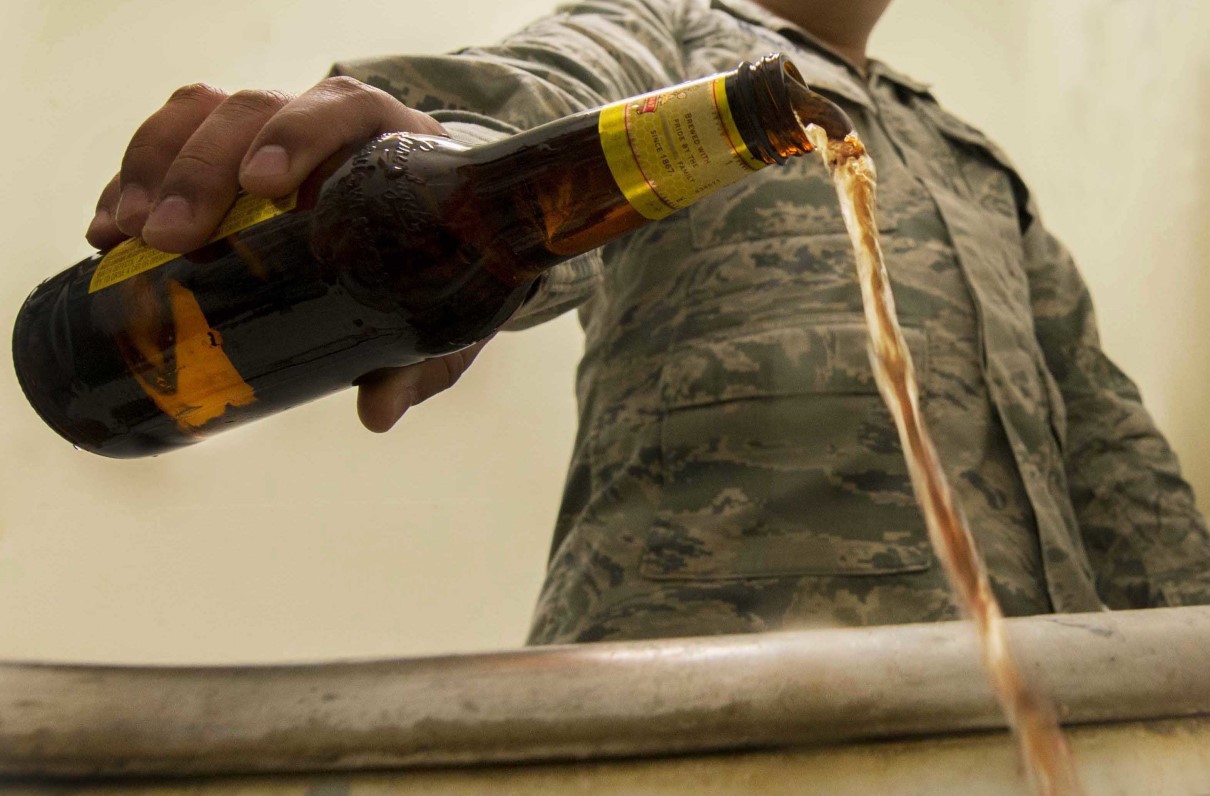Editor’s note: This article by Thomas Novelly originally appeared on Military.com, a leading source of news for the military and veteran community.
Service members who were diagnosed with alcohol use disorder didn't receive proper treatment to address their issues and some received no care at all, according to a new report from the Department of Defense's Inspector General that reviewed surveys from 2018-2020.
The findings, released Monday, come as the military tries to grapple with alcohol and substance abuse within the ranks as it puts service members at a higher risk of experiencing anxiety, depression and, at worst, suicidal thoughts.
In total, only seven military units with 270 service members were included in the review, a reflection of the inconsistency of alcohol abuse screenings, the inspector general found. But the watchdog pointed to disturbing trends in that small sample.
The National Institute on Alcohol Abuse and Alcoholism defines alcohol use disorder as a medical condition where someone can't control their consumption of alcohol despite clear consequences.
Pentagon policy requires service members to complete an "Alcohol Use Disorders Identification Test-Consumption" -- known as an AUDIT-C -- questionnaire at least once a year during their routine health assessment with the Defense Health Agency or their primary care provider.
[RELATED FROM 2019: Pentagon Launches Prescription Monitoring Program to Curb Substance Abuse]
The report detailed that 104 service members, nearly 40% of those reviewed, did not take an assessment to diagnose an alcohol use disorder within the Defense Health Agency's required timeframe.
Additionally, 98 service members who were diagnosed with an alcohol use disorder did not receive their recommended treatment within seven or 28 days, and three service members who were diagnosed with an alcohol use disorder "did not receive their recommended treatment" at all, the inspector general's office revealed.
"Service members experienced delays in receiving alcohol use diagnoses required to determine the appropriate care, potentially affecting physical, social, psychological, familial, and employment health," the report stated.
The National Institute on Alcohol Abuse and Alcoholism has identified drinking and substance abuse among young service members as a "significant problem in the military."
"Personnel often use alcohol in an attempt to cope with stress, boredom, loneliness, and the lack of other recreational activities," the NIAAA says on its website. "The easy availability of alcohol, ritualized drinking opportunities, and inconsistent policies contribute to a work culture that facilitates heavy and binge drinking in this population."
[RELATED: More Recommended Reads From MOAA]
The study also highlighted that 103 service members in the study were involved in an alcohol-related incident. One-third of them were not referred for an intake assessment within the Army, Marine Corps or Air Force timeline requirements, the inspector general's report stated.
The IG recommended that the DHA director find a more efficient way to track when service members are due for their annual screenings and the progress of their substance use treatment.
Additionally, the watchdog called for the DHA to fill vacant positions in the agency, establish a set time between a referral and an intake assessment for a substance use disorder, and establish a set number of days to provide substance abuse treatment following a diagnosis.
Sarah Meadows, a senior sociologist with the nonprofit Rand Corp. who specializes in studying substance abuse in the military, said the recommendations in the inspector general's report focused on a lot of the processes, but didn't address some larger systemic issues the surveys reveal.
Some service members don't do their annual health assessment or don't self-report that they're at risk for alcohol misuse, she said.
"Unless there's an actual alcohol-related incident, or their commander is telling them that they need to be screened or perhaps treated for alcohol misuse or abuse, then you're not capturing them," Meadows said. "But the idea is to capture them before it gets through a full-blown problem."
Meadows said many young service members can develop bad habits and routines that they'll bring into their civilian lives as veterans.
Excessive drinking has been estimated to cost the Defense Department $1.1 billion per year in lost productivity and medical treatment. It also is thought to result in the loss of roughly 320,000 work days a year and lead to roughly 34,400 arrests per year.
Despite the impact of alcohol use, however, 68% of active-duty troops said they found military culture to be supportive of drinking, and 42% said their supervisor doesn't discourage alcohol use, according to the 2015 Health-Related Behavior Survey conducted by Rand.
Meadows recognized that drinking is woven into the culture of the military, but added that binge drinking is what the Department of Defense is aiming to curb.
"It's culture until there is that serious accident and somebody gets hurt because they had stayed out until the wee hours of the morning drinking or they were still drunk the next day when they came to work," Meadows added. "A lot of it goes back to this culture of excessive drinking."
Support The MOAA Foundation
Donate to help address emerging needs among currently serving and former uniformed servicemembers, retirees, and their families.
